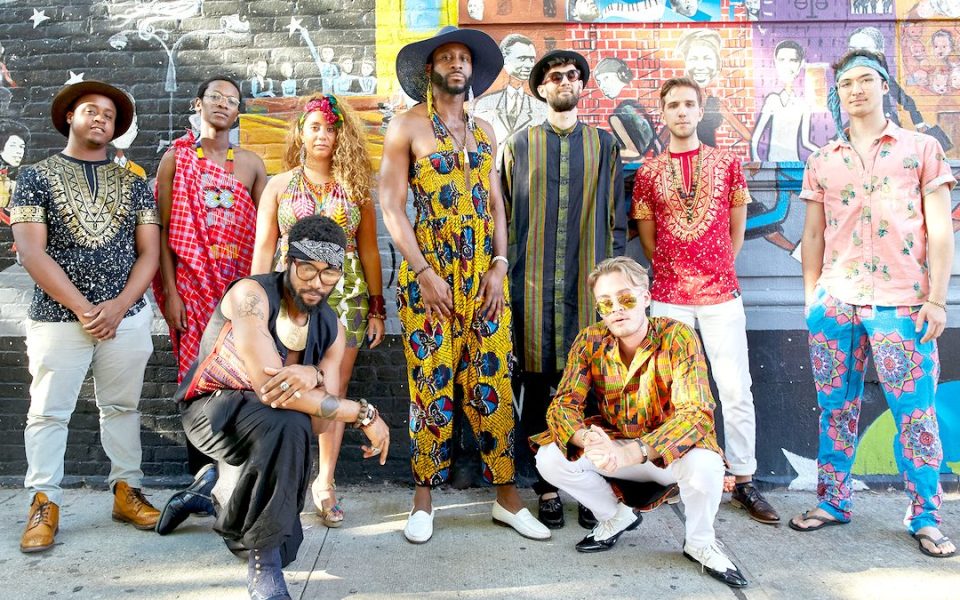Mwenso & the Shakes performs on all three days at the
Folk Festival. Find out more at ncfolkfestival.com. Rajia Hassab speaks during
the Finding Home panel at the Bookmarks Festival on Saturday from 11 to 11:30
a.m. at the Reynolds
Place Theatre inside the Milton Rhodes Arts Center.
Being an immigrant is kind of like having a superpower. Like
being a chameleon who adapts quickly to different situations, with an increased
empathy for those not like us.
At least that’s how musician Michael Mwenso thinks about
being an immigrant.
“It lets you understand different people,” says the frontman and singer for the group Mwenso & the Shakes (pictured above). “It definitely has allowed me to have a unique ability to connect with people because of all of the places that I’ve been to.”
Mwenso grew up in Sierra Leone but moved to London as a
teenager. Eventually, he made his way to New York City, where he met a group of
diverse musicians and performers who would form the global nine-person troupe.
Influenced by a background in African-American music such as jazz, funk and
blues, Mwenso & the Shakes twist, turn and spit out refreshing sounds that
defy strict categorization. The group even has a tap dancer. Their debut album,
Emergence, which came out in August,
offers a live recording of their setlist.
Being an immigrant is a part of Mwenso’s identity, as
inseparable to him as being a musician is.
“I want to represent the world,” he says. “You know it’s so
mixed now…. You want to be able to say, ‘I can connect with that person or say
that I can connect with this band because it’s so multifaceted.’”
For Egyptian-American writer Rajia Hassib, the immigrant
experience can be both freeing and constraining at the same time.

“I definitely feel like there’s a pressure to represent an
ethnicity or an immigrant experience,” she says. “But I’m fine with it. I’m not
rejecting that pressure of representation. I think that minorities are
underrepresented in general.”
Growing up in Egypt, Hassib wrote in Arabic but read a lot
of books in English. She eventually left her home country and moved to the United
States and began writing her own novels in English.
“You develop a hybrid identity in a way,” she says. “I
definitely have ethnic roots of having grown up in Egypt… but I’ve changed a
lot since moving to the US so I’m both.”
Hassib’s most recent novel, A Pure Heart, tells the story of the bond between two Egyptian
sisters. For Hassab, portraying Arab women helps to deconstruct stereotypes.
“People bring comfort in trying to categorize people that
they don’t know well,” she says. “They take shortcuts, but no one is definable
in this way. I think so many of the problems that we are facing today… are
rooted in hate stemming from misunderstanding. But once [immigrants] are able
to express themselves, we can unpack this fear and understand that there is no
need to fear the other.”
Join the First Amendment Society, a membership that goes directly to funding TCB‘s newsroom.
We believe that reporting can save the world.
The TCB First Amendment Society recognizes the vital role of a free, unfettered press with a bundling of local experiences designed to build community, and unique engagements with our newsroom that will help you understand, and shape, local journalism’s critical role in uplifting the people in our cities.
All revenue goes directly into the newsroom as reporters’ salaries and freelance commissions.


Leave a Reply